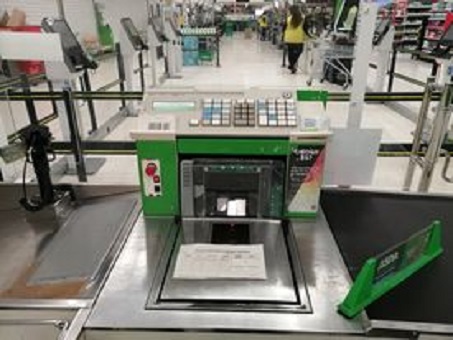Changes in the High Street and shortages caused by climate change

Reports that the High Street was in crisis date back to a number of years before the pandemic.
Reasons include high rents as well as business rates which give online competitors an advantage. For example the British Government has pointed out that while Amazons business rates are 0.7% of turnover, High Street shops are paying between 1.5% and 6.5% of turnover.
But changing the rating system is unlikely to save the High Street on its own.
As well known chain stores closed we have repeatedly been told that as businesses, they failed to adapt in the fast changing world of retail. When looking at the individual collapses, that’s certainly true of most of them, but what of the High Street as a whole? What changes in the High Street are needed?
Surveys regularly tell us that customers want extended opening hours and to be able to shop in the evenings after work. Major supermarkets are aware of their customers’ wishes and remain open until late and often for 24 hours a day during the week.
While Local Authorities have been closing public toilets to save money, the supermarkets provide toilets that are kept clean and are free to use.
They also provide free customer car parking, although the most successful shopping areas outside London are those which are pedestrianised or largely free of traffic congestion caused by private vehicles.
But the “big four” supermarkets have also been losing market share, with competition from the discounters Aldi and Lidl usually quoted as the main reason. I think that the perception that they are cheaper is exaggerated, but they are gaining market share through opening stores in residential areas,close to where people live.
Stuff v self
Changes in the High Street are now being explained in terms of stuff v self.
The major retailers sell things (stuff), but business growth in the High Street has been businesses concentrating on self – hairdressers, vaping shops, coffee shops and restaurants, beauty, gyms and even tattoos. The consumerism that has come to dominate our town and city centres is being replaced by a desire for wellbeing.
So how much stuff will be available in the future anyway?
The shortage of microchips has caused problems in the manufacturing of a range of products from cars to computers, mobile phones and games consoles.
Earlier this year two factories in Texas producing microchips were out of action for months following storm damage. Taiwan suffered its worst drought for over half a century forcing another factory in this water intensive industry to close. Climate also affected plants in Japan and China. The factories affected by climate events supplied a majority of the world’s chips.
It is a coincidence, but as severe climate events become more common, shortages caused by climate change seem more likely.
Bloomberg has stated that “hundreds of thousands of acres of coffee production were wiped out this year by extreme weather and climate-driven blights”.
It would take 12 years to develop new coffee varieties better able to cope, but it takes 3 years after planting for trees to turn in a profit, and mature trees will continue to produce for 25 -30 years.
Growers, paid a pittance for their crops, have neither the time, nor the capital to change their production methods.
Let them drink tea? I’m afraid not. According to the International Journal of Research Studies in Agricultural Sciences “climate change is expected to decrease not only the quality of tea, but also the quantity of tea production”.
The Canadian Government has reported that crop yields have “plummeted” (except corn), while maize production has dropped in the world’s largest production area, the southern USA, as a result of more damaging tornadoes.
It’s difficult to deny that there is likely to be less stuff to buy in the future, because of shortages caused by climate change, which will mean an end to consumerism after hundreds of years of growth.
Or, to put it another way, we’ll all be poorer!


